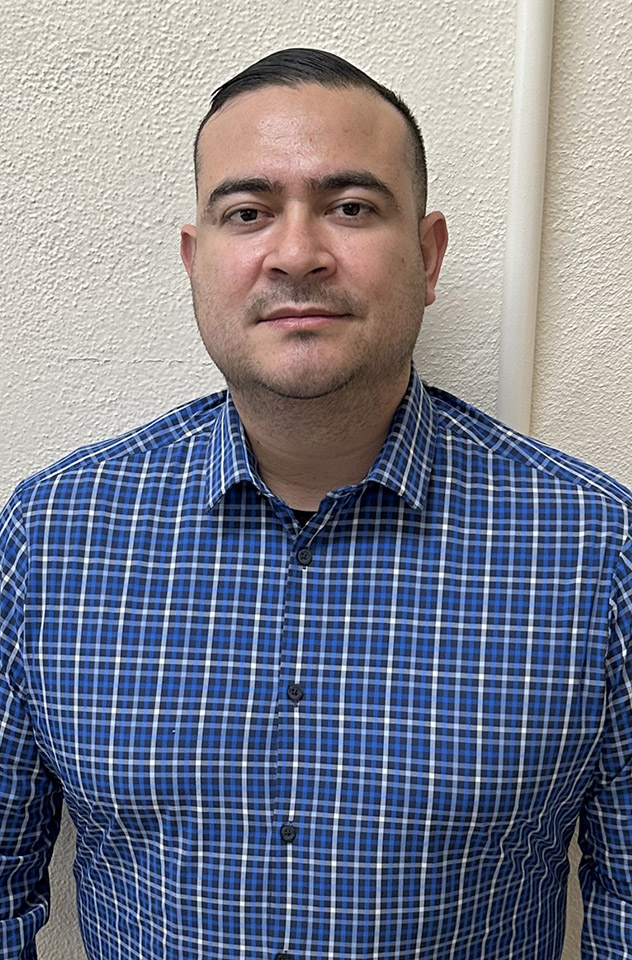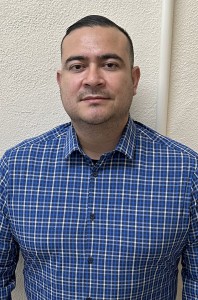LAUSD Mentor Helps Male Teachers of Color in CSUN Program

Eberardo Rodriguez.
Early in his career, like many new teachers, Eberardo Rodriguez wondered whether he would stay in the profession.
He could handle the challenges of teaching — the long hours, onerous paperwork and low pay. He also loved serving as a role model for students and pushing them to challenge themselves. But a key question dogged him when he thought about his future in the classroom: Is it worth it?
Mentors, particularly other male teachers, encouraged him to tough it out. They suggested ways for him to balance work with the rest of his life.
“Sometimes, we just need the guidance and conversations to put things in perspective,” said Rodriguez, a resource specialist teacher at Huntington Park High — now in his 15th year teaching.
Rodriguez pays forward the support he received by mentoring other educators in the Los Angeles Unified School District and through the Los Angeles Male Teachers of Color Network.
With funding from the W.K. Kellogg Foundation, the network is a partnership of the Michael D. Eisner College of Education at California State University, Northridge, and the LAUSD. The project demonstrates the impact of mentorship on improving the recruitment and retention of male educators of color — in a profession where the typical teacher is female and 80% are white, compared to about 46 percent of students.
Hiring and Retaining ‘Good People’
The mentor network, a part of the LAUSD Division of Human Resources, has grown to more than 120 teacher mentors, each of whom advises about 10 new teachers in LAUSD. According to CSUN professor John M. Reveles — the grant director — the Los Angeles Male Teachers of Color Network additionally provides professional development across the district to 75 LAUSD administrators on the retention of new male teachers of color.
The L.A. project builds on and expands the success of the Compton Male Teachers of Color Network, a pilot that Reveles co-founded in 2018 in partnership with Compton Unified School District, UC Berkeley and CSUN. The Compton pilot was funded by a grant from the FEDCO Charitable Foundation.
Students of color benefit academically from having educators of similar backgrounds, and all students benefit from greater teacher diversity, according to research. But many new teachers — about 44% — leave the profession in less than five years. The retention rate is even lower for male teachers of color.
“When you hire good teachers and retain them, it’s good for the children, it’s good for the school, it’s good for the community,” Reveles said.
The mentorship network addresses key reasons why men quit teaching, such as stagnation when they aren’t given opportunities to move into leadership positions. Participants learn how to interact with their administrators and seek out leadership positions. They engage in affinity groups, or spaces where they can talk to each other, share research, and get help solving problems, Reveles said.
They don’t just talk about education. In affinity spaces, the men discuss real-world issues such as trauma and oppression that affect them personally and collectively, such as the murder of George Floyd, who was killed in 2020 by police officers in Minneapolis.
The Impact of Mentorship
This summer, the district promoted Rodriguez to the role of teacher adviser, where he’ll help develop highly effective mentors for the district. The promotion builds on the impact of mentorship on his life.
As a child, Rodriguez said, he gravitated toward male teachers at school because he didn’t have a father figure. It was a male teacher/coach, a mentor, who suggested to Rodriguez that he would be a strong educator. Rodriguez has told his former teachers how much it meant for them to tell him they believed in him. He encouraged his students in a similar way.
As a mentor, Rodriguez also celebrates and uplifts his mentees. During the pandemic, he surprised his group with custom-printed T-shirts that designate them as “a team of amazing teachers” and features an illustration of the downtown L.A. skyline on the front and each man’s name on the back, like a sports jersey. The men wore their shirts during a Zoom call and took a group photo, a screenshot.
For Rodriguez, a former basketball coach, the shirts illustrate his love of creating “a sense of belonging, a sense that you’re part of a team,” he said.
“You’re part of something bigger than yourself.”
To contribute to an existing Michael D. Eisner College of Education fund, or to create a fund of your own, please contact the CSUN Office of Development at (818) 677-2786 or development@csun.edu.


 experience
experience